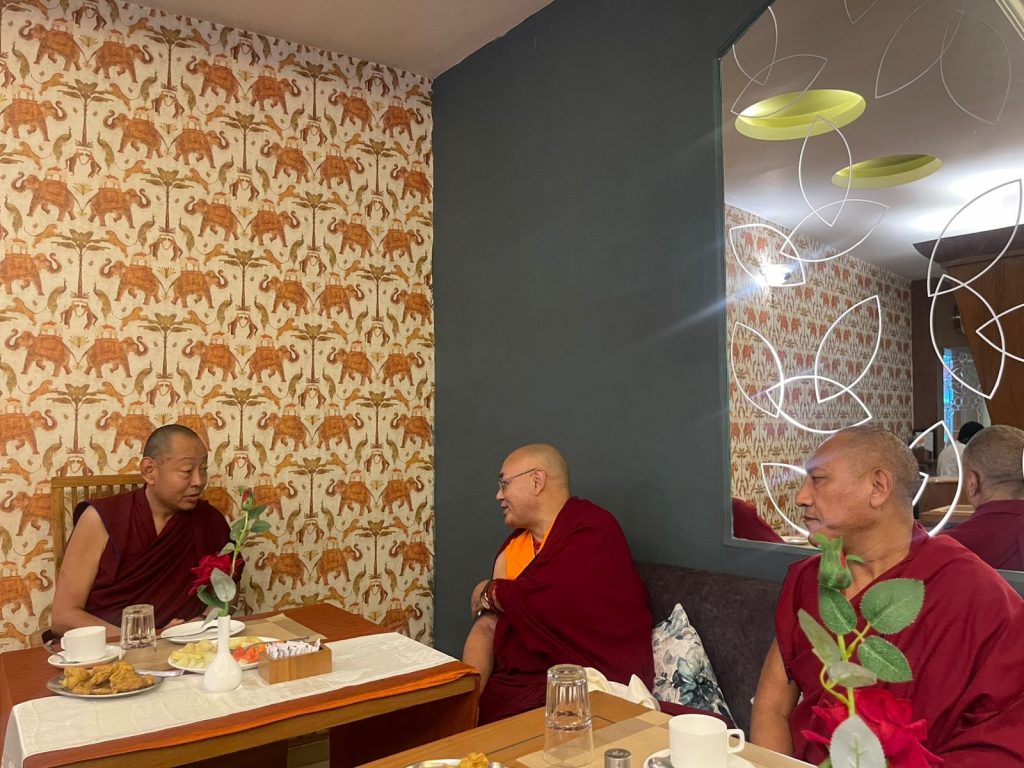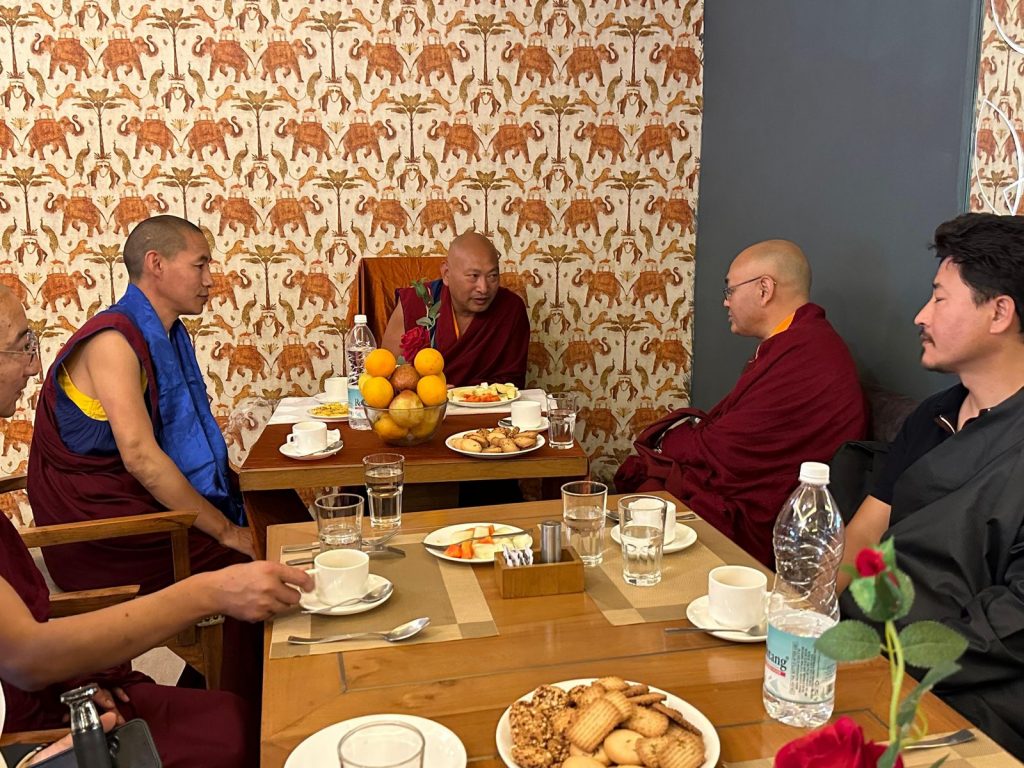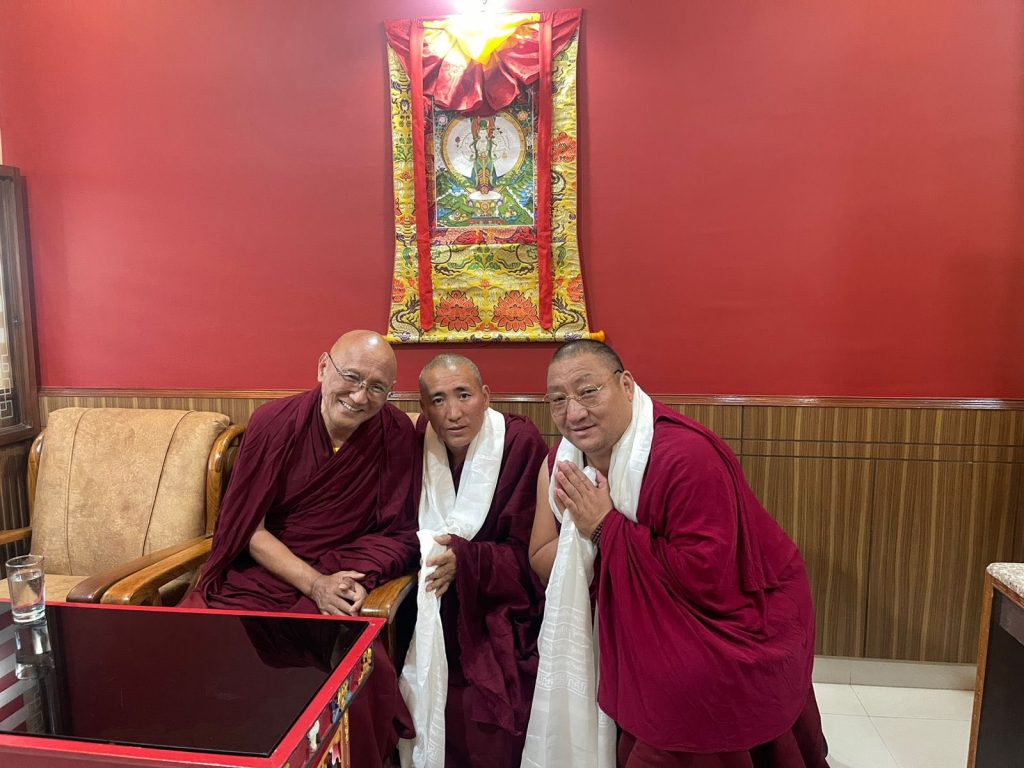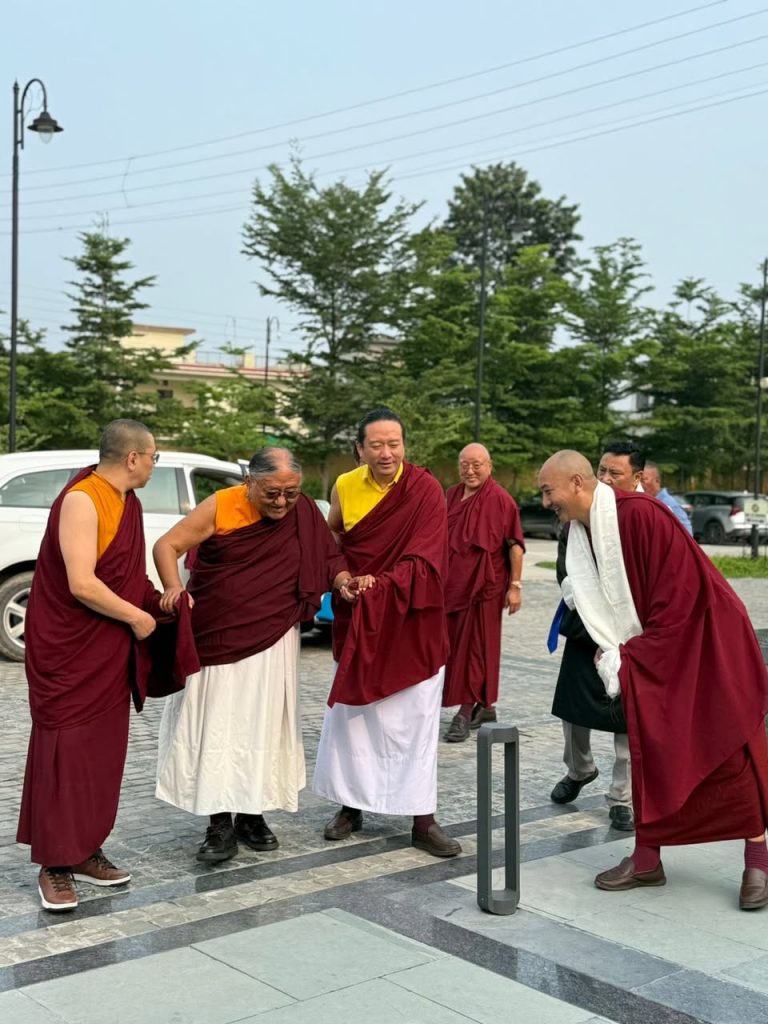
Tokyo, Japan, 3 June 2025: The 9th World Parliamentarians’ Convention on Tibet (WPCT) commenced today at the International Conference Hall of the Japanese Parliament, bringing together 142 participants from 29 countries. This convention is organized by the Tibetan Parliament-in-Exile in collaboration with the Japan Parliamentary Support Group for Tibet.
The opening session featured addresses by Chief Guest Akiko Santo, Member and former Speaker of the House of Councillors; Special Guest Madam Akie Abe, former First Lady of Japan; and Rev. Chojun Ohtani, the 25th Chief Abbot of the Higashi Hongwanji Temple. The session also included video messages from Speaker Emerita Nancy Pelosi and Congressman Michael McCaul of the United States, addresses from the Speaker of the Tibetan Parliament-in-Exile, Khenpo Sonam Tenphel and the Chairperson of the Japan Parliamentary Support Group for Tibet, Eriko Yamatani. A special highlight was a message from His Holiness the Dalai Lama, followed by the screening of the documentary Democracy: The Gift of His Holiness the 14th Dalai Lama to Tibet.

Speaker Tenphel, extended warm greetings to all attendees on behalf of the Tibetan Parliament-in-Exile. In his address, he outlined the objectives and agenda of the conference, provided an overview of the current critical situation inside Tibet, and summarized the key components of the conference program.
Chief guest Akiko Santo delivered a powerful speech focusing on the unwavering efforts of His Holiness the Dalai Lama in seeking a peaceful resolution to the Sino-Tibet conflict . She highlighted that despite these efforts, the Chinese Communist government continues to suppress Tibetan culture and language, placing them at risk of complete eradication. Emphasizing the importance of unity and solidarity, she urged collective support for the Tibetan people in their pursuit of freedom and peace. She further stated that this conference provides an opportunity for parliamentarians to engage in open and sincere dialogue, thereby strengthening mutual relationships. She emphasized the vital role of Western parliamentarians in supporting the Tibetan cause and contributing to the resolution of the Tibet-China conflict.

Special guest Akie Abe, shared heartfelt remarks. She recounted how, following her husband’s passing, His Holiness the Dalai Lama sent a message of condolence along with a statue of the Buddha. She keeps the statue in front of her late husband’s photograph and regularly offers prayers. Reflecting on His Holiness’s visit to Japan and their meeting, she noted the pressure exerted by the Chinese Communist government at the time. She emphasized that her late husband was a staunch advocate for human rights and deeply concerned about the situation in Tibet. She pledged her continued and strengthened support for the Tibetan cause.
Reverend Chojun Ohtani, also addressed the gathering. He spoke about his meeting with His Holiness the Dalai Lama during his visit to Hongwanji Temple on November 9, 2016. In his speech, Reverend Ohtani emphasized that the pursuit of happiness is a fundamental aspiration of human life and that the cultivation of compassion and loving-kindness in one’s heart is essential to achieving it.

Also in attendance were Speaker Khenpo Sonam Tenphel, Sikyong Penpa Tsering, Deputy Speaker Dolma Tsering Teykhang, DIIR Kalon Norzin Dolma, Members of the Tibetan Parliament-in-Exile, and officials from the Central Tibetan Administration, including the Secretary and Additional Secretary of DIIR, and Representatives of His Holiness the Dalai Lama.
Session II, chaired by Japanese MP Urano Yasuto, featured a keynote address by Sikyong Penpa Tsering, a video message from Richard Gere, Chair of the International Campaign for Tibet, and a powerful testimony by former Tibetan political prisoner Namkyi. This was followed by a panel on countering the Chinese Communist Party’s disinformation and addressing the challenges of authoritarianism, chaired by Dr. Mumin Chen, Professor at National Chung Hsing University and Vice President of the Taiwan Foundation for Democracy.
Speakers included Mr. Dilip Sinha, former Indian diplomat and author of Imperial Games in Tibet, and Prof. Ishihama Yumiko of Waseda University, Japan.

Another session, titled The Authoritarian Regime of the PRC: Challenges to Democratic Institutions and Human Rights, was chaired by Yoshiko Sakurai, President of the Japan Institute for National Fundamentals. Speakers included Fernand de Varennes, former UN Special Rapporteur on Minority Issues; Teppei Kasai of Human Rights Watch Japan; and Stephen Schneck, Chair of the United States Commission on International Religious Freedom (via video).
The session on Promoting Diplomatic Solutions: Multilateral Approaches to Resolving Transnational Repression, chaired by DIIR Kalon Norzin Dolma, featured insights from Tenzin Dawa, Executive Director of the Tibetan Centre for Human Rights and Democracy, and Kitai Daisuke, China Coordinator at Amnesty International Japan. Video messages were delivered by Dainius Žalimas (MEP, Lithuania), Esteban Paulon (Deputy, Argentina), Michael Brand (MP, Germany), and Italian Senators Andrea De Priamo, Malavasi Ilenia, and Giulio Terzi di Sant’Agata.

The sixth session addressed Tibet’s environmental importance and the impact of China’s policies on the fragile ecosystem of the Tibetan Plateau. Chaired by Professor Srikanth Kondapalli, an expert in Chinese Studies from Jawaharlal Nehru University, the session featured presentations by Tempa Gyaltsen Zamlha, Deputy Director of the Tibet Policy Institute, and Professor Brahma Chellaney, Professor Emeritus at the Centre for Policy Research, New Delhi.
The first day concluded with the formation of working groups for in-depth discussion and presentation.

Organized by the Tibetan Parliament-in-Exile, this convention continues the legacy of eight prior WPCTs, aimed at strengthening coordinated parliamentary support for resolving the Tibet issue. The inaugural WPCT was held in New Delhi (1994), recognizing India’s pivotal role in preserving Tibetan identity post-occupation. Subsequent conventions were held in Vilnius (1995), Washington D.C. (1997), Edinburgh (2005), Rome (2009), Ottawa (2012), Riga (2019), and again in Washington D.C. (2022).
The convention’s objectives are to encourage parliamentarians to play a leading international role in advocating for the survival of Tibetan identity and culture, promoting human rights and religious freedom in Tibet, and urging a renewed dialogue between representatives of His Holiness the Dalai Lama and the People’s Republic of China toward a negotiated solution.


















































